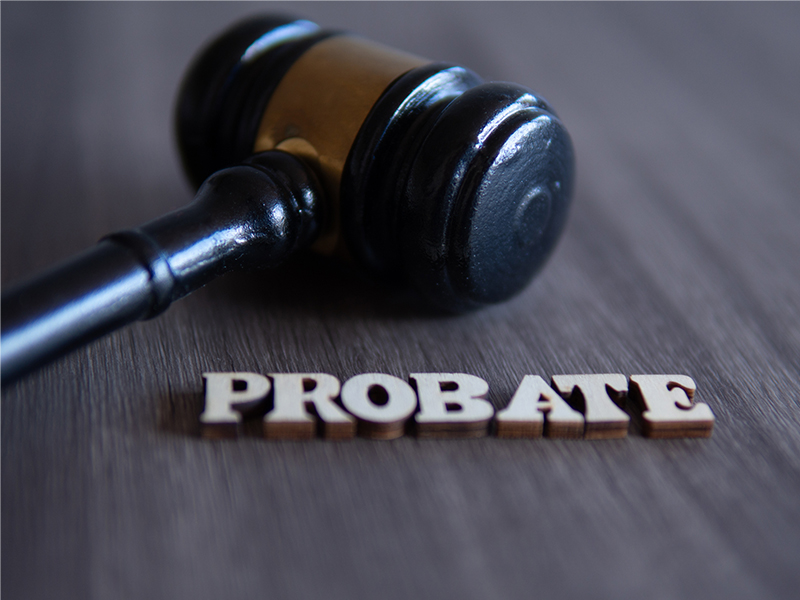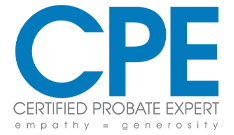
The death of a loved one often brings a whirlwind of emotions, and amidst grief, the responsibility of settling their estate can feel especially daunting. As an executor in Virginia, you’re tasked with navigating the legal labyrinth of probate, a process that demands meticulous attention to detail, adherence to deadlines, and a firm grasp of legal and financial intricacies.
Unfortunately, even with the best intentions, executors can make mistakes that lead to frustrating delays, costly legal battles, and financial losses for the estate and its beneficiaries. This blog post aims to shed light on ten common pitfalls executors often encounter during Virginia probate, offering practical strategies to help you avoid these mistakes and ensure a smoother, more efficient process.
- Underestimating the Executor’s Role
- Filing legal documents with the court
- Adhering to strict deadlines
- Communicating effectively with beneficiaries
- Prudently handling financial matters
- Making informed decisions regarding estate assets
- Educate Yourself: Immerse yourself in the world of Virginia probate. Explore online resources, consult relevant books, and consider attending workshops specifically designed for executors.
- Seek Professional Guidance: Don’t hesitate to consult a Virginia probate attorney. They can provide personalized advice, answer your questions, and guide you through the legal complexities, especially if the estate is complex or potential conflicts exist among beneficiaries.
- Failing to Locate All Assets
- Bank accounts
- Investment portfolios
- Retirement funds
- Real estate
- Vehicles
- Personal belongings
- Digital assets (online accounts, cryptocurrency)
- Conduct a Thorough Search: Go beyond readily available documents. Scrutinize the deceased’s files, check safe deposit boxes, and contact financial institutions.
- Explore Digital Assets: Many individuals have online accounts, social media profiles, and digital assets that may hold value or contain crucial information.
- Check for Unclaimed Property: The Virginia Department of Unclaimed Property holds unclaimed funds and property. It’s worth checking if the deceased had any unclaimed assets.
- Neglecting to Notify Creditors
- Publish Notices: Virginia law mandates publishing a notice to creditors in a local newspaper once a week for two consecutive weeks.
- “Debts and Demands” Hearing: Request a “Debts and Demands” hearing with the Commissioner of Accounts. This establishes a deadline for creditors to file claims, providing a timeframe for settling debts and distributing assets.
- Prematurely Distributing Assets
- Exercise Patience: Wait until all debts, taxes, and administrative expenses are paid before distributing assets to beneficiaries.
- Seek Legal Counsel: Consult with a Virginia probate attorney to ensure you understand the proper timing for asset distribution and avoid potential legal issues.
- Overlooking Tax Obligations
- Consult a Tax Professional: Work with a tax professional familiar with Virginia estate tax laws. They can help you navigate the tax requirements, ensure accurate filings, and minimize potential tax liabilities.
- Mismanaging Real Estate
- Secure and Maintain: Secure the property by changing locks and ensuring it’s insured with vacant property insurance. Maintain the property by keeping up with landscaping, repairs, and necessary upkeep.
- Work with a Probate Real Estate Agent: A probate real estate agent familiar with Virginia’s real estate market and the probate process can help determine the best course of action for the property, whether selling, renting, or holding onto it.
- Ignoring Legal Requirements
- Hire a Probate Attorney: The best way to avoid legal missteps is to hire a Virginia probate attorney to guide you through the process. They can provide expert legal advice, ensure you meet all requirements, and help you navigate any challenges.
- Failing to Communicate with Beneficiaries
- Regular Updates: Provide beneficiaries with regular updates on the probate case’s progress, explaining the steps involved, the timeline, and any challenges.
- Transparency: Be transparent about your actions as executor. Share relevant documents and information with beneficiaries, and be prepared to answer their questions.
- Effective Communication Channels: Establish an email distribution list or other communication channels to ensure all beneficiaries receive updates simultaneously.
- Taking Probate Personally
- Stay Objective: Remain objective and treat probate as a business process, focusing on fulfilling your duties as executor and adhering to the law.
- Mediation: If conflicts arise, consider mediation. A neutral third party can help facilitate communication and resolve disputes amicably.
- Attempting to Handle Everything Alone
- Build a Team: Assemble a team of professionals to assist you, including a Virginia probate attorney, a tax advisor, a financial planner, and a probate real estate agent, if needed.
- Delegate Tasks: Don’t hesitate to delegate tasks to other professionals or trusted individuals. This can free up your time and energy to focus on the most critical aspects of the probate process.
Many executors embark on this journey with an incomplete understanding of the breadth and depth of their responsibilities. It’s not merely about distributing assets; it’s about managing the entire estate in accordance with Virginia law. This includes:
Solution:
One of the executor’s primary duties is identifying and locating all of the deceased’s assets. This can be surprisingly challenging, particularly if the deceased wasn’t organized or had assets in various locations. Overlooking assets can lead to incomplete estate accounting and potential disputes among beneficiaries. Remember, everything must be accounted for, including:
Solution:
Executors have a legal obligation to notify creditors of the decedent’s passing. This allows them to file claims against the estate for any outstanding debts. Failing to do so can lead to unresolved debts, legal complications, and potential personal liability for the executor.
Solution:
While beneficiaries may be eager to receive their inheritance, distributing assets too early can have serious repercussions. If distributions occur before settling all debts, taxes, and expenses, the estate may lack sufficient funds to cover its obligations, potentially leading to financial difficulties and legal disputes.
Solution:
Probate often involves various tax filings, which can be complex and confusing. Executors are responsible for filing the decedent’s final federal and Virginia income tax returns, as well as any necessary estate tax returns. Missing deadlines can result in significant penalties and interest charges.
Solution:
If the estate includes real estate, proper management is crucial. Failing to maintain the property, delaying its sale, or misunderstanding the real estate market can significantly decrease its value and lead to disputes among beneficiaries.
Solution:
Virginia probate laws are complex and must be followed meticulously. Skipping steps, missing deadlines, or filing incorrect paperwork can cause significant delays, legal complications, and even personal liability for the executor.
Solution:
Open and honest communication with beneficiaries is essential throughout the probate process. Failing to keep them informed, address their concerns, or be transparent about your actions can breed mistrust, conflicts, and even legal disputes.
Solution:
Probate can be emotionally charged, especially when family dynamics are involved. It’s easy to let emotions influence your decisions, but acting out of anger, grief, or resentment can cloud your judgment and lead to poor decision-making and disputes.
Solution:
Probate is a complex process with many moving parts. Trying to handle everything alone, without seeking professional help or delegating tasks, can lead to mistakes, overwhelm, and unnecessary stress.
Solution:
Serving as an executor is a significant responsibility, but by being aware of these common mistakes and taking proactive steps to avoid them, you can fulfill your role with confidence, integrity, and peace of mind. Remember, probate is a journey, and there will be challenges along the way. But with careful planning, attention to detail, and the right support, you can navigate this process successfully and honor your loved one’s legacy.




